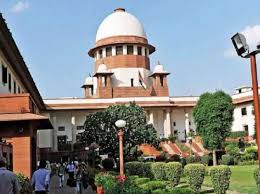Pre-Conception and Pre-Natal Diagnostic Techniques (Regulation &Prevention of Misuse) Act, 1994, Section 20(1) & (2) and Section 20(3) – Pre-Conception and Pre-Natal Diagnostic Techniques – Revocation of suspension of registration of Polyclinic – Challenge as to –Held that power of subsection(3) of Section 20 of PC&PNDT Act is notwithstanding the power of subsections(1) & (2) of Section 20 – The said power can only be exercised when the appropriate authority forms an opinion that it is necessary or expedient in public interest to do so – It is incumbent upon the appropriate authority to form its opinion based on reasons expedient or necessary to exercise the power of suspension -Inspection was made on21.10.2010, and the order of suspension was passed on25.10.2010 without any notice or affording any opportunity of hearing as per subsection(2) of Section 20 – On filing appeal, the appellate authority remitted it to the appropriate authority which passed the subsequent order of suspension dated 29.12.2010exercising the power under subsection(3) of Section 20, which is not justified and has rightly been set-aside by Learned Single Judge and confirmed by the Division Bench – Since the order under challenge has been implemented and the hospital is operational, therefore no further consequential orders are required to be passed directing to revive the registration. (Para 16 and 18)
SUPREME COURT OF INDIA
2024 STPL(Web) 207 SC
[2024 INSC 173]
District Appropriate Authority Under The Pndt Act And Chief District Health Officer Vs. Jashmina Dilip Devda & Anr.
Civil Appeal No. 3831 of 2024 [Arising out of SLP (C) No. 17973 of 2015]-Decided on 04-03-2024
https://stpllaw.in/wp-content/uploads/2024/04/2024-STPLWeb-207-SC.pdf







